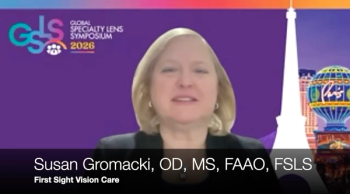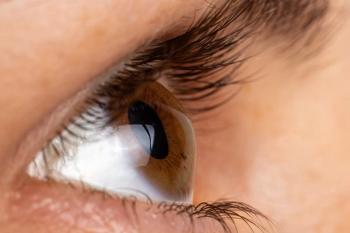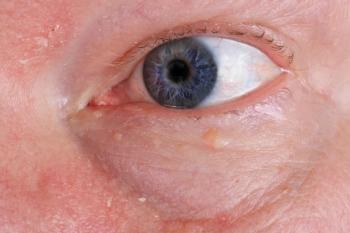
Cognition Therapeutics announces dosing of first patient in MAGNIFY study of CT1812
CT1812 is an experimental, oral therapy for the treatment of geographic atrophy secondary to dry age-related macular edema.
Cognition Therapeutics announced it has dosed the first participant in the phase 2 Magnify study of CT1812, an oral therapy for the treatment of
According to a press release from the company,1 the MAGNIFY study is a randomized, placebo-controlled trial expected to enroll approximately 246 adults diagnosed with dry AMD with measurable GA.
The company states that CT1812 will be given orally, opposed to the typical intravitreal injection many development-stage therapies use. It will be given once daily for 24 months to determine if it can slow disease progression, measured by changes in GA lesion size.
David R P Almeida, MD, MBA, PhD, a vitreoretinal surgeon and the president, CEO and director of clinical research at Erie Retinal Surgery enrolled the first patient in the Magnify trial and discussed the trial in a press release from Cognition.
“Given the complex nature of dry AMD, even with an approved complement inhibitor, it is likely that a significant proportion of patients may need and benefit from a drug that mitigates the disease progression through a unique mechanism of action,” said Almeida.
Lisa Ricciardi, MBA, president and CEO of Cognition discussed the unique, oral aspect of the Magnify trial in the release.
“Our research suggests that a σ-2 modulator, such as CT1812, has the potential to protect RPE cells from several of these key drivers, which may allow patients to retain their visual acuity for longer,” said Ricciardi.
CT1812 is an experimental small molecule sigma-2 (σ-2) receptor modulator designed to penetrate the blood-retinal barrier and bind selectively and saturably to the σ-2 receptor complex.1
The company noted the σ-2 receptor complex is involved in the regulation of key cellular processes such as membrane trafficking and autophagy that are damaged by toxic interaction with soluble beta amyloid (Aβ) oligomers, oxidative stress and other stressors. Cognition’s clinical program will assess if regulating these processes by modulating the σ-2 receptor with CT1812 can maintain homeostatic function.1
References:
Cognition Therapeutics Announces Dosing of First Patient in MAGNIFY Study of Oral CT1812 for Geographic Atrophy Secondary to Dry AMD. Cognition; July 11, 2023. Accessed July 11, 2023. https://ir.cogrx.com/news-releases/news-release-details/cognition-therapeutics-announces-dosing-first-patient-magnify
Newsletter
Want more insights like this? Subscribe to Optometry Times and get clinical pearls and practice tips delivered straight to your inbox.













































